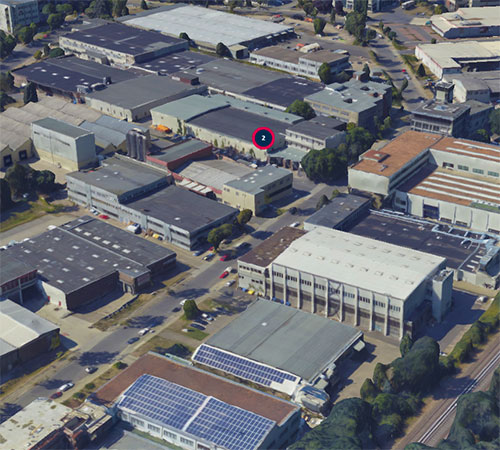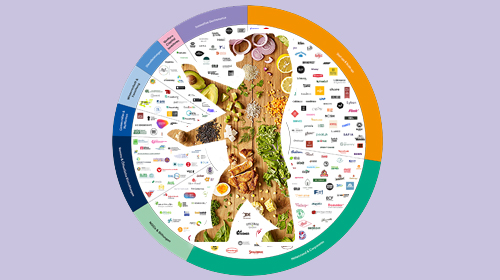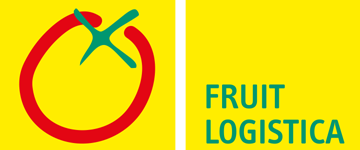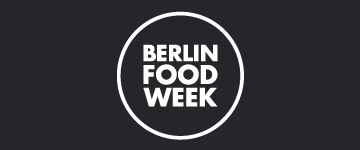Food industry
The surrounding agricultural regions and the more than six million consumers in the metropolitan area provide a solid foundation for growth in the food and beverage sector.
The agriculture and food industry is a key economic factor in the Berlin-Brandenburg metropolitan region and is characterized by a higher than average level of organic farming in Brandenburg compared to the rest of Germany.
The Berlin food industry accounts for over 10% of employment in the manufacturing sector. The focus is on the production of:
- Coffee,
- confectionery and baked goods,
- fruit and vegetable processing,
- beverage industry and
- meat processing.
Nationally and internationally renowned companies such as Bahlsen, Cargill, Coca-Cola, Freiberger, Kühne, Radeberger Group, Storck, and Stollwerck benefit from the optimal location conditions in Berlin. Sawade is Berlin's oldest chocolate manufacturer, while Fassbender & Rausch has grown to become the largest chocolate manufacturer in the world.
Berlin is also the craft beer capital: under the motto “handcrafted,” numerous microbreweries such as BRLO and Thorsten Schoppe Bräu produce their own craft beer. On the site of the former gasworks in Mariendorf, Scottish brewery Brew Dog operates DogTap Berlin, the world's first CO2-negative brewery.
The food industry benefits from the approximately 300 biotech companies in the region, which jointly develop biogenic raw materials and sustainable production processes. Applications range from probiotic bacteria for disease protection to prebiotics for the growth of beneficial bacteria. New bacterial strains and uses for algae are being researched for dietary supplements.
Food tech
Berlin is steadily developing into the center of the food tech scene in Germany and also plays a key role in Europe: six of Europe's 50 leading food tech startups come from the German capital.
(Source: European AgriFoodTech Top 50 - DigitalFoodLab, 2025)
The food market is changing rapidly, particularly in the areas of plant-based, cell-based, and precision-fermented foods. Internationally active companies use Berlin as a springboard, such as Formo, Europe's first cellular agriculture company. This is where the dairy products of the future are developed. More and more startups are recognizing that food can be key to solving global challenges and are developing innovative products accordingly.
Examples of major projects and initiatives focusing on the food industry:
- Food Campus Berlin is being built in Berlin-Tempelhof – a new hub for all areas of the sustainable food industry with space for research, production, administration, marketing, and logistics.
- The community discusses which food trends are shaping the nutritional revolution at Food Campus Digital.
- REWE is partnering with Berlin-based start-up ECF Farmsystems to promote regional food production with short transport routes and less packaging: REWE Green Farming, a resource-efficient supermarket with a large rooftop farm for urban agriculture, is being built in southwest Berlin.
Berlin offers excellent conditions for startups in the food and food tech sectors, and not just as an ideal test market. In recent years, young and fast-growing companies have set out on this path, including:
- Veganz - vegan product variety
- Koawach - fair trade organic cocoa with caffeine from guarana
- HelloFresh - meal kit provider
- KitchenStories - video and photo tutorials for simple dishes
- Hokey Pokey - ice cream parlor
- Bluu Seafood - seafood made from fish cells
Location advantages for the food industry
- Strategic location: Close economic ties to new EU members and proximity to 250 million consumers in Eastern Europe.
- High-performance agriculture: Regional businesses ensure quality and rapid availability of raw materials.
- Efficient infrastructure: Packaging service providers and logistics centers guarantee short distances to the consumer.
- New prospects through EU enlargement: Quality programs for organic meat and potatoes boost sales and marketing.
- Using locally produced raw materials offers great potential for development.
- Bio hotspot of Europe: Berlin has the highest density of organic supermarkets in Europe
- High potential in processing and value creation: especially for yogurt, cheese, frozen foods, convenience foods, chilled foods, and juices.
- Leading international trade fairs: Grüne Woche, the world's largest consumer fair for agriculture and food, and Fruit Logistica, the leading industry gathering for the fresh fruit trade, take place in Berlin.
(Sources: Die Berliner Industrie, Senate Department for Economic Affairs, Energy and Public Enterprises, 2024)








